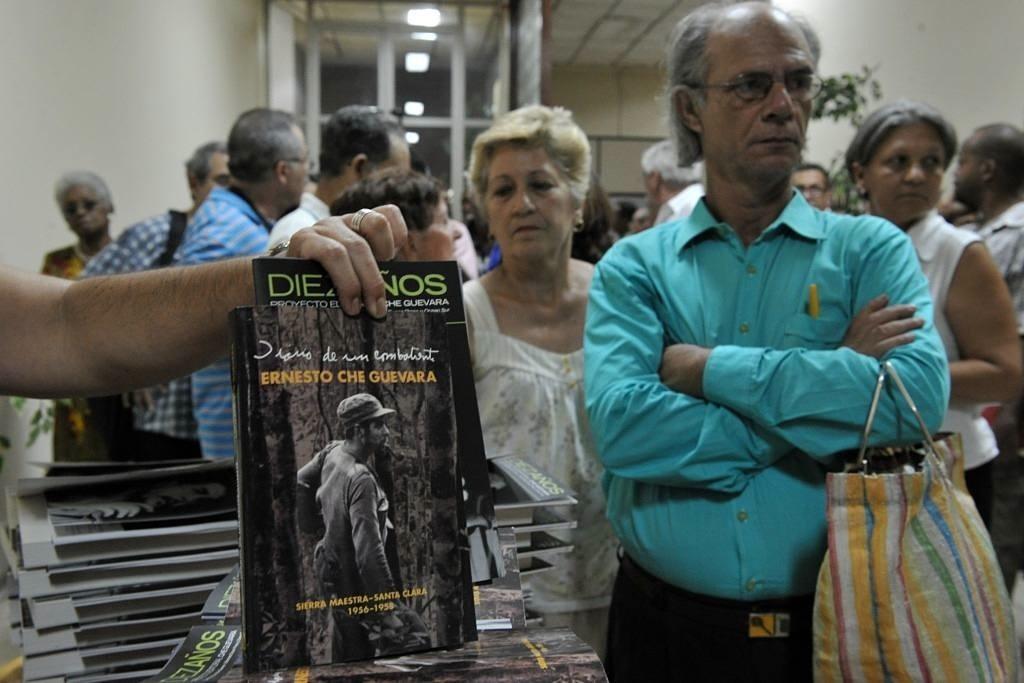New “Che” Guevara diary of the revolution published in Cuba
People wait in line in Havana, Cuba, to receive a copy of the new “Che” Guevara diary — a previously unpublished account of the revolutionary’s experience, while fighting a guerilla campaign alongside Fidel Castro.
A previously unpublished diary that Ernesto "Che" Guevara kept during the guerrilla campaign that brought Fidel Castro to power in 1959 has been released in Cuba, according to the Guardian.
"Diary of a Combatant" recounts Guevara's experiences after arriving in Cuba on Dec. 2, 1956, until just before the rebels declared victory on January 1, 1959, CNN reported. Aleida March, Guevara's widow, said the goal was "to show his work, his thoughts, his life, so that the Cuban people and the entire world get to know him and don't distort things anymore."
The book was unveiled in Havana, the capital, on Tuesday on what would have been the Argentine-born revolutionary's 83rd birthday, the Guardian said. It documents the three-year guerrilla campaign that resulted in the overthrow of then-president Gen. Fulgencio Batista and Castro taking power.
The diary shed light on "Che Guevara's impressions of Cuba, its culture, identity and political context," according to the publishers, BBC News said.
The publishers said Guevara, who was trained as a doctor, had terrible handwriting and it had taken them a long time to decipher it. The book was edited by the Che Guevara Studies Center, which is directed by his widow, and published by Australia's Ocean Press/Ocean Sur, CNN reported.
During the campaign in the Sierra Maestra mountains, Guevara was the first member of the group to be promoted to the top rank of "comandante" by Castro, and after the overthrow of Batista, he held the positions of minister of industries and president of the central bank, AFP said.
In 1965, he left Cuba with about 100 soldiers to start a revolution in what was then the Belgian Congo, but it failed and he went back to Cuba to prepare for the campaign in Bolivia, where he was captured and executed in 1967.
Che Guevara's other writings have done well in the past. He published a manual on guerrilla warfare in 1960, and a separate account of the Sierra Maestra campaign entitled "Episodes of the Cuban Revolutionary War" was published in 1963, BBC said.
The diary of his failed guerrilla campaign in Bolivia sold very well when it was released in 1968, and has been reprinted many times. "The Motorcycle Diaries," his memoir of a road trip through Latin America when he was 23 years old, was commercially successful and was made into a film.
The story you just read is accessible and free to all because thousands of listeners and readers contribute to our nonprofit newsroom. We go deep to bring you the human-centered international reporting that you know you can trust. To do this work and to do it well, we rely on the support of our listeners. If you appreciated our coverage this year, if there was a story that made you pause or a song that moved you, would you consider making a gift to sustain our work through 2024 and beyond?
